
The Enchanting Waters of the Sangha River
Nestled in the heart of the Central African Republic, the Sangha River is a breathtaking gem that flows through one of the most ecologically diverse regions on the planet. This majestic river is not only a vital waterway but also a sanctuary for wildlife and a paradise for nature lovers. The Sangha River is part of the Sangha Trinational, a UNESCO World Heritage Site that spans three countries: the Central African Republic, Cameroon, and the Republic of Congo. This pristine area is home to dense rainforests, which provide a haven for a variety of unique species, including gorillas, elephants, and an array of birds. The rich biodiversity and serene landscapes make it an ideal spot for eco-tourism and adventure. Visitors to the Sangha River can indulge in activities like guided wildlife safaris, bird watching, and river cruises. The local communities are warm and welcoming, offering a glimpse into their traditional ways of life. With its untouched beauty and tranquil ambiance, the Sangha River is a hidden treasure waiting to be explored.
Local tips in Sangha River
- Visit during the dry season (December to March) for the best wildlife viewing opportunities.
- Hire a local guide to enhance your experience and ensure safe navigation through the area.
- Bring insect repellent and wear long sleeves to protect against mosquitoes.
- Respect local customs and traditions when visiting nearby villages.
- Ensure you have all necessary vaccinations and travel insurance before your trip.
The Enchanting Waters of the Sangha River
Nestled in the heart of the Central African Republic, the Sangha River is a breathtaking gem that flows through one of the most ecologically diverse regions on the planet. This majestic river is not only a vital waterway but also a sanctuary for wildlife and a paradise for nature lovers. The Sangha River is part of the Sangha Trinational, a UNESCO World Heritage Site that spans three countries: the Central African Republic, Cameroon, and the Republic of Congo. This pristine area is home to dense rainforests, which provide a haven for a variety of unique species, including gorillas, elephants, and an array of birds. The rich biodiversity and serene landscapes make it an ideal spot for eco-tourism and adventure. Visitors to the Sangha River can indulge in activities like guided wildlife safaris, bird watching, and river cruises. The local communities are warm and welcoming, offering a glimpse into their traditional ways of life. With its untouched beauty and tranquil ambiance, the Sangha River is a hidden treasure waiting to be explored.
When is the best time to go to Sangha River?
Iconic landmarks you can’t miss
Notre-Dame of Bangui Cathedral
Explore the Notre-Dame of Bangui Cathedral, a stunning blend of modern architecture and spiritual history in the heart of Central African Republic.
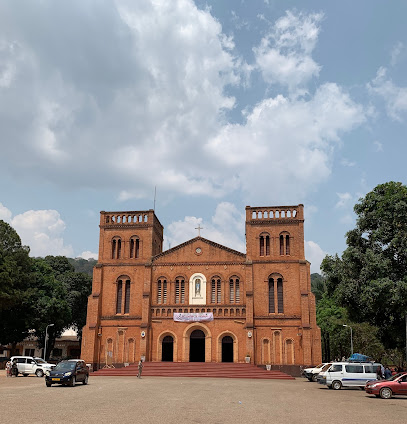
Hotel Levy's
Experience the heart of Bangui with comfort and convenience at Hotel Levy's, your ideal lodging choice in the Central African Republic.

Odzala-Kokoua National Park
Explore the breathtaking landscapes and diverse wildlife of Odzala-Kokoua National Park in the Republic of Congo, a hidden gem for adventurous travelers.
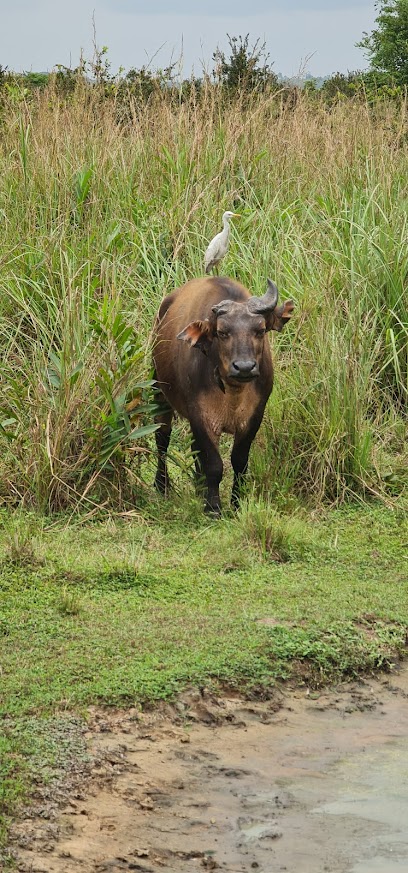
Chutes de Boali
Discover the breathtaking beauty of Chutes de Boali, a stunning waterfall in the Central African Republic that captivates with its natural charm and serene surroundings.
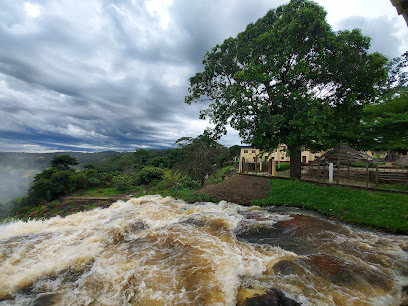
Hotel du Centre
Discover the warmth and charm of Bangui at Hotel du Centre, your cozy retreat in the heart of the Central African Republic's vibrant capital.

Grande Mosquée de Bangui
Discover the Grande Mosquée de Bangui, a symbol of faith, culture, and peaceful coexistence in the heart of the Central African Republic.
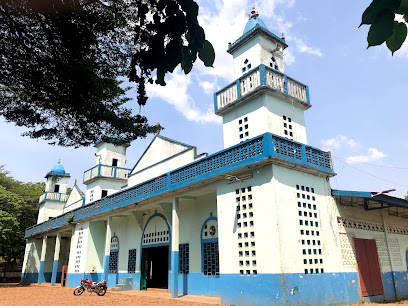
Sangha Lodge
Experience the serene beauty of Sangha Lodge, a perfect blend of comfort and nature along the banks of the Sangha River in Djomo.
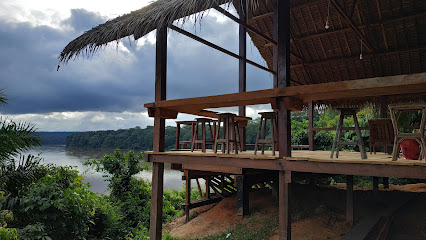
Doli Lodge
Discover nature's beauty at Doli Lodge in Bayanga, where adventure meets tranquility in the heart of Central African Republic.

Manovo-Gounda-Saint Floris National Park
Explore the enchanting wildlife and breathtaking landscapes of Manovo-Gounda-Saint Floris National Park, a UNESCO World Heritage Site in Central Africa.
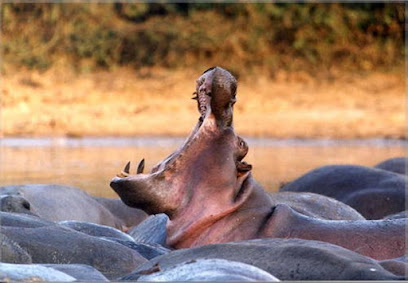
Boganda National Museum
Discover the cultural treasures of the Central African Republic at the Boganda National Museum, a gateway to its rich history and vibrant art.
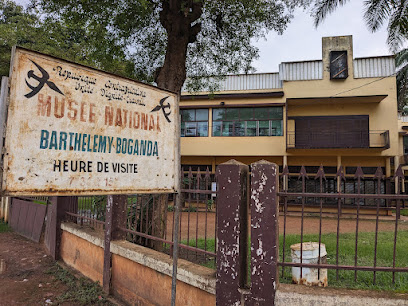
Санга
Explore the breathtaking Sangha National Forest in Congo-Brazzaville, a sanctuary of rich biodiversity and stunning natural beauty.
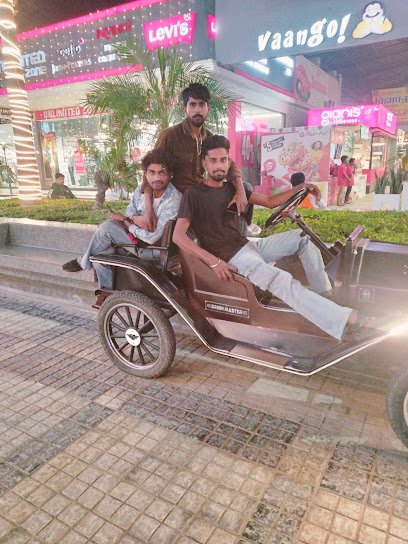
Mbaéré Bodingué National Park
Explore the stunning landscapes and rich biodiversity of Mbaéré Bodingué National Park, a natural sanctuary in the heart of Central African Republic.

Dzanga-Ndoki National Park
Immerse yourself in the breathtaking landscapes and extraordinary wildlife of Dzanga-Ndoki National Park, a paradise for eco-tourists and adventurers.
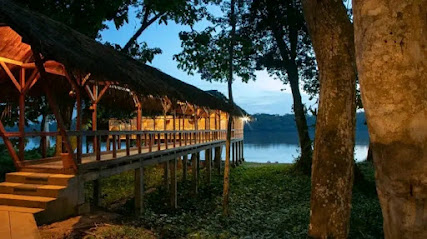
Unmissable attractions to see
Chinko Nature Reserve
Explore the breathtaking landscapes and diverse wildlife of Chinko Nature Reserve, a hidden gem in Central Africa's natural beauty.
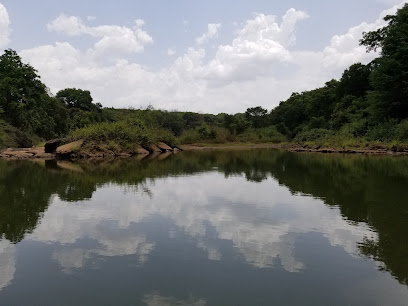
Grande Mosquée de Bangui
Explore the Grande Mosquée de Bangui, a cultural gem in Central Africa, showcasing stunning architecture and deep-rooted Islamic traditions.
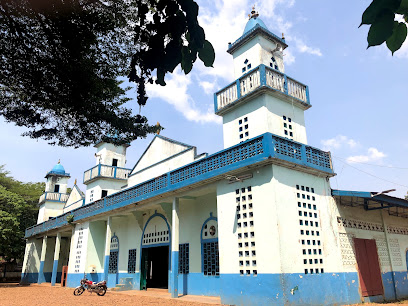
Manovo-Gounda-Saint Floris National Park
Experience the wild allure of Manovo-Gounda-Saint Floris National Park, a UNESCO World Heritage Site rich in biodiversity and breathtaking landscapes.
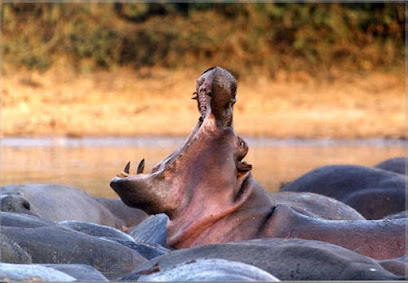
Boganda National Museum
Explore the cultural depths of Central Africa at Boganda National Museum, where history and artistry converge for an unforgettable experience.
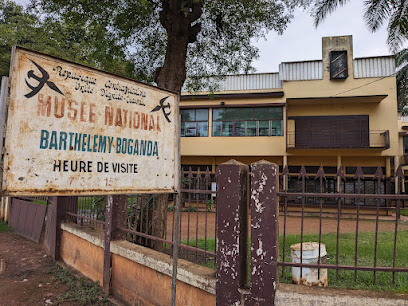
Dzanga-Ndoki National Park
Discover the breathtaking biodiversity and rich wildlife of Dzanga-Ndoki National Park in Central Africa's pristine rainforests.
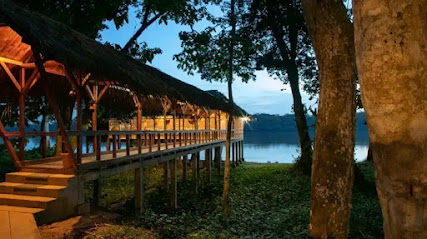
Essential places to dine
Ledger Plaza Bangui
Discover luxury and comfort at Ledger Plaza Bangui – your gateway to exploring the heart of Central African Republic.

Relais des Chasses
Discover Relais des Chasses: A delightful blend of local cuisine and comfortable accommodations in the heart of Bangui.

5 FOURCHETTES
Experience the rich flavors of Central Africa at 5 FOURCHETTES, Bangui's premier destination for authentic culinary delights.
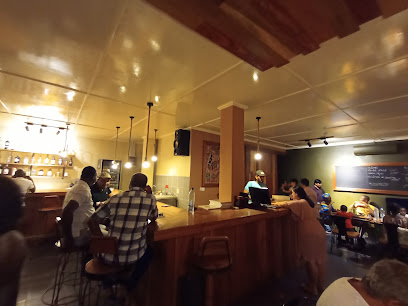
Cafrina
Discover the authentic taste of Central Africa at Cafrina in Bangui – where local flavors meet international flair.
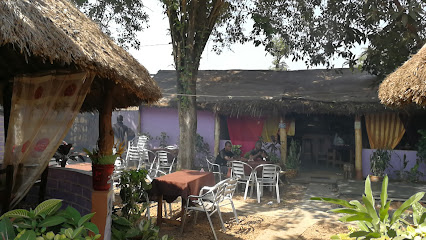
Restaurant Le M'
Experience authentic Central African cuisine at Restaurant Le M' in Bangui - where every meal tells a story.
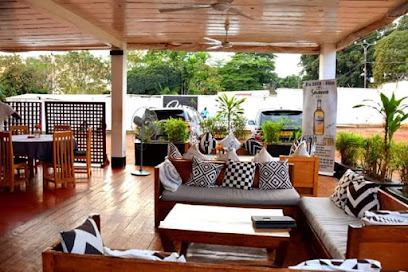
SANGO
Experience authentic Central African cuisine at SANGO, where tradition meets modern dining in the heart of Bangui.
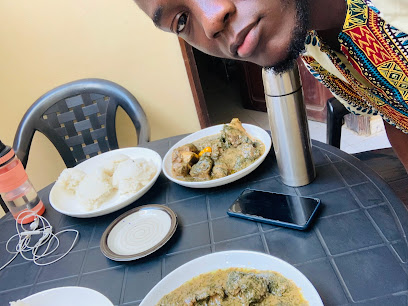
Sewa Bar
Experience Bangui's vibrant nightlife at Sewa Bar, where eclectic drinks and lively ambiance create unforgettable moments.
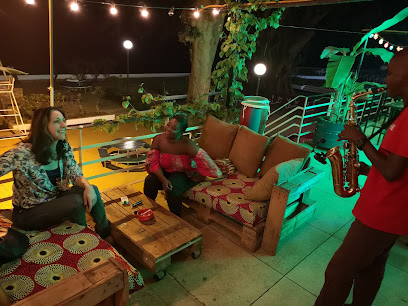
Le Casablanca
Discover the vibrant culinary scene at Le Casablanca in Bangui's public park - where local flavors meet lively outdoor dining.
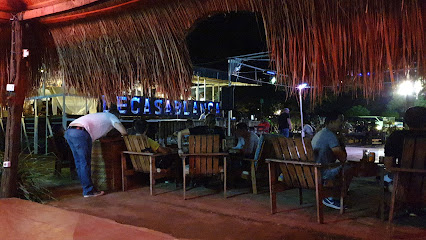
Hotel Somba
Discover authentic Central African hospitality at Hotel Somba in Bangui – your starting point for exploring vibrant local culture.
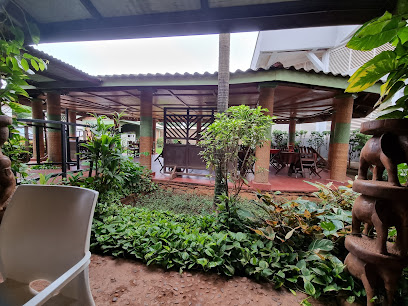
Restaurant Senegalais Terranga
Experience authentic Senegalese flavors at Restaurant Senegalais Terranga in Bangui - where every dish tells a story.
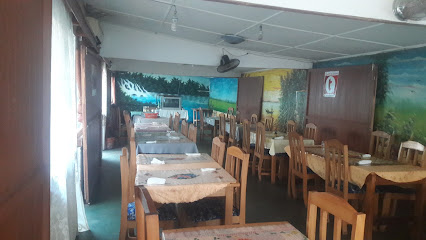
Cuisine A
Experience authentic Central African cuisine at Cuisine A in Bangui - where every dish tells a story.
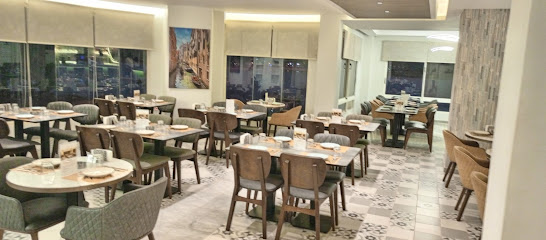
L'Escale
Experience authentic flavors at L'Escale in Bangui - where local cuisine meets warm hospitality.
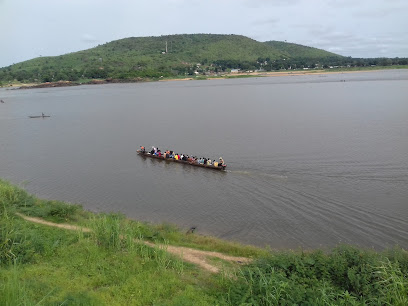
Moodbucks
Discover Moodbucks in Bangui – where local flavors meet international cuisine in a cozy atmosphere perfect for all occasions.
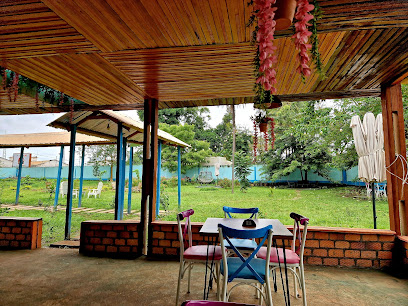
la Casa restaurant & hotel
Discover authentic Chinese flavors at La Casa Restaurant & Hotel in Bangui, where culinary excellence meets vibrant atmosphere.
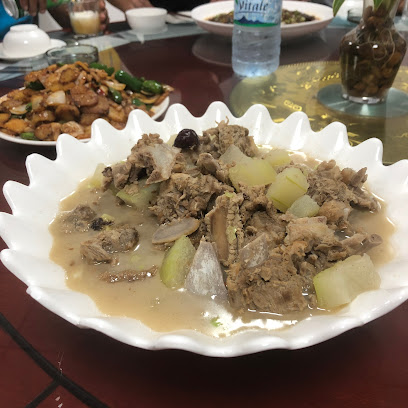
Spicy Panda
Experience authentic Chinese cuisine at Spicy Panda in Bangui - a culinary delight amidst vibrant local culture.
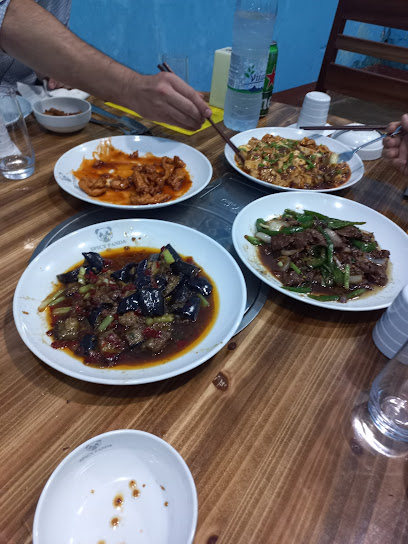
Markets, malls and hidden boutiques
African Galleria
Explore the African Galleria in Usangi for handcrafted souvenirs that celebrate Tanzania's rich culture and artistry.
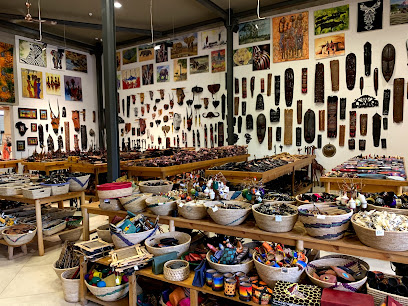
Corail
Explore the vibrant flavors of Bangui at Corail grocery store, a local treasure for fresh produce and authentic Central African products.
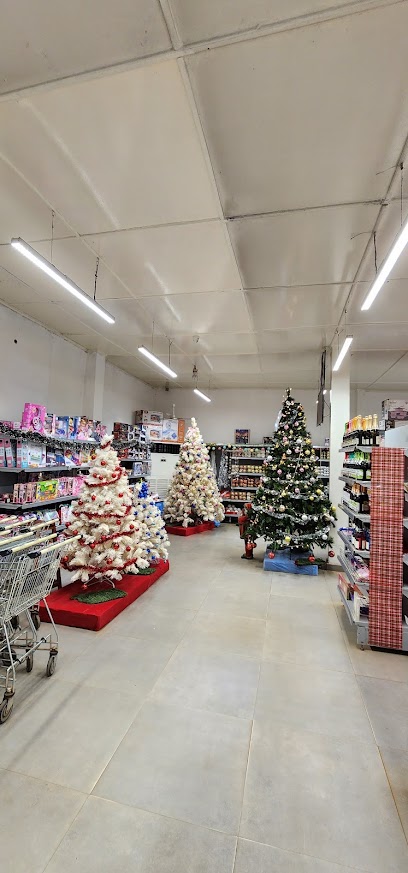
Bangui Mall
Discover Bangui Mall: A hub of shopping, dining, and entertainment in the heart of Central African Republic.
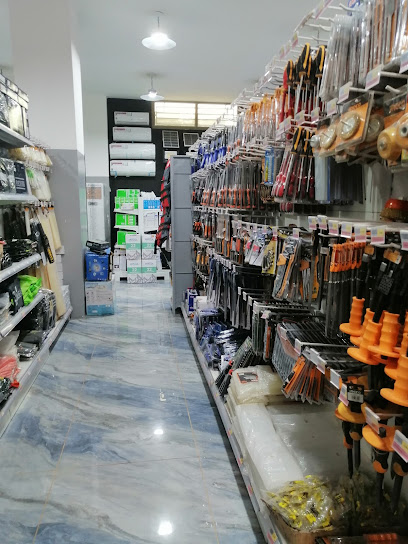
Marché Central
Experience the vibrant culture and unique offerings at Marché Central, Bangui's bustling marketplace for cosmetics, perfumes, and local crafts.
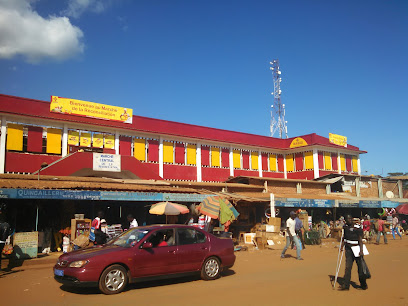
Sangha Lodge
Discover tranquility and adventure at Sangha Lodge, the perfect retreat in Djomo, Central African Republic, surrounded by nature's beauty.
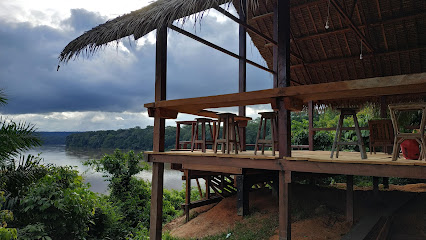
Doli Lodge
Discover tranquility at Doli Lodge, where nature meets comfort in the heart of Bayanga, Central African Republic.

Ndara Ti Beafrika
Explore Ndara Ti Beafrika, the premier gift shop in Bangui for unique local crafts and cultural treasures that encapsulate Central African heritage.
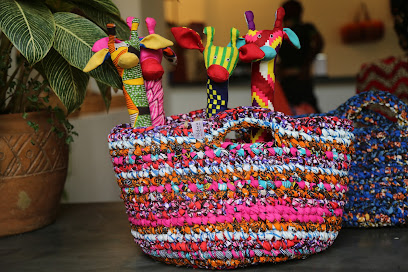
COLALU
Discover Colalu, Bangui's premier shopping mall, where retail therapy meets local culture and delightful dining experiences.

Made in Africashops
Experience the rich culture of Congo with unique crafts and local delicacies at Made in Africa Shops in Brazzaville.

Dzanga-Ndoki National Park
Explore the pristine wilderness of Dzanga-Ndoki National Park, a biodiverse paradise in the heart of Africa, teeming with wildlife and natural beauty.
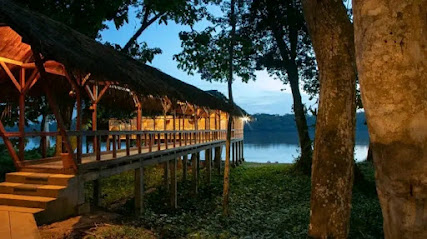
Sangha River
Discover the breathtaking beauty of Sangha River in the Republic of the Congo, a perfect blend of adventure and tranquility amidst lush landscapes.

boutique privatisée
Experience the vibrant spirit of Bangui at Boutique Privatisée, where local artistry and craftsmanship come together in a charming store.

Streams Africa
Discover the vibrant shopping and cultural experiences at Streams Africa, the premier destination in Jos, Nigeria.

Fleuve Congo
Discover the majestic beauty of the Fleuve Congo, a cultural and natural wonder in Itua, Congo - Kinshasa, perfect for adventurous travelers and cultural enthusiasts.

Essential bars & hidden hideouts
Relais des Chasses
Discover the culinary charm of Relais des Chasses in Bangui, where delicious local dishes meet a cozy bed & breakfast setting.

Cafrina
Experience authentic Central African flavors at Cafrina, a restaurant in Bangui that delights with local dishes and a warm ambiance.
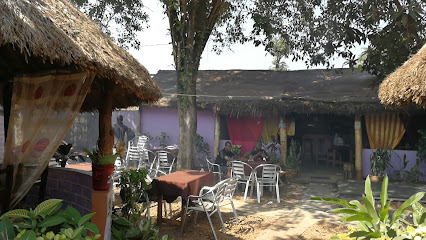
SANGO
Discover the vibrant flavors of Bangui at SANGO, a must-visit restaurant offering a unique blend of local and international cuisine.
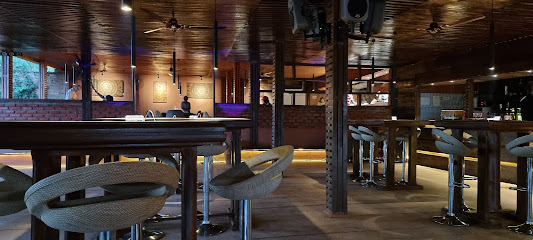
Sewa Bar
Experience the vibrant nightlife of Bangui at Sewa Bar, a perfect blend of local culture and lively atmosphere.
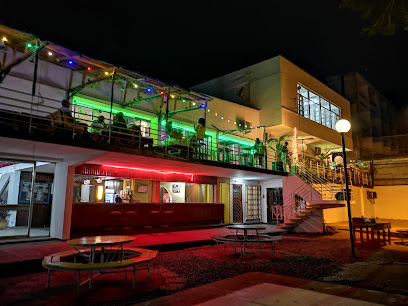
La Tourangelle
Experience the essence of Bangui dining at La Tourangelle, where culinary artistry meets breathtaking river views.
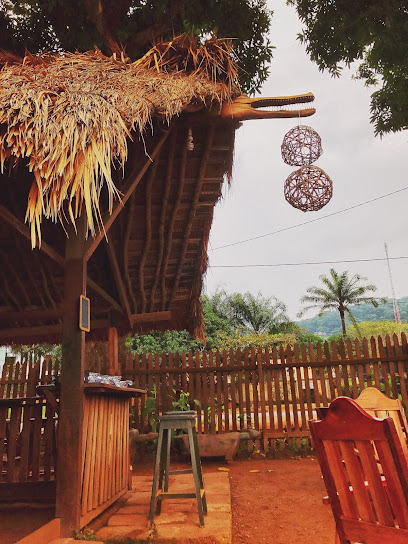
Le Balafon
Discover the lively ambiance and refreshing drinks at Le Balafon, a must-visit bar in Bangui for an authentic local experience.
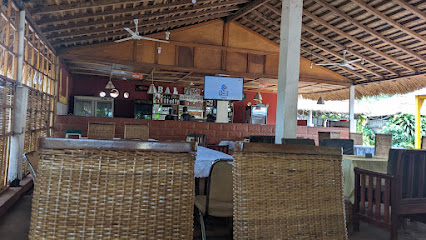
L'Escale
Experience the authentic flavors of Bangui at L'Escale, a vibrant restaurant that celebrates Central African cuisine and culture.
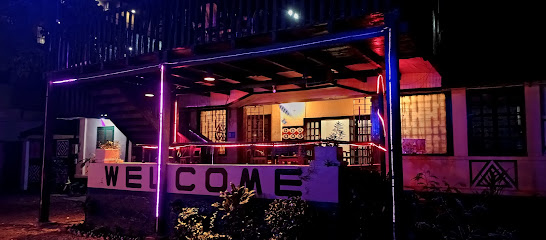
Sangha Lodge
Discover the serene beauty of Sangha Lodge, a premier riverside hotel offering comfort, adventure, and stunning nature in the heart of Central Africa.
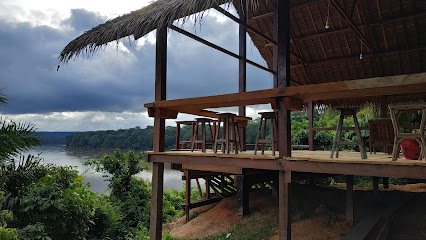
Doli Lodge
Discover the charm of Doli Lodge, a unique hotel nestled in Bayanga, Central African Republic, surrounded by breathtaking wildlife and nature.

La Verdure
Experience the vibrant atmosphere of La Verdure, a charming bar in Bangui, perfect for unwinding and enjoying a variety of beverages.
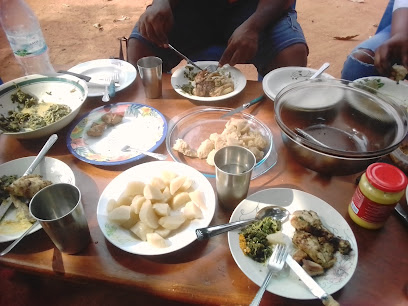
Bar Cite de la Joie
Discover Bar Cite de la Joie in Bangui for an unforgettable evening of local flavors and vibrant nightlife in the heart of Central African culture.
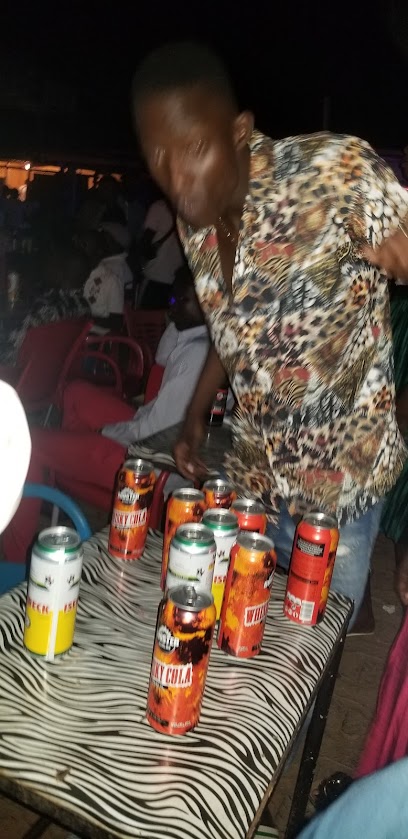
WASSA
Discover the vibrant atmosphere of WASSA, a lively bar in Bangui, perfect for experiencing Central African nightlife and culture.

Sangha River
Discover the tranquility and breathtaking beauty of the Sangha River in the Republic of the Congo, a natural paradise for adventurers and nature lovers alike.

Local Phrases about Sangha River
-
- HelloMbolo
[m-bo-lo] - GoodbyeKèlè
[kay-lay] - YesEe
[ay] - NoAyò
[ah-yo] - Please/You're welcomeMènènguè
[may-nay-gway] - Thank youMènènguè
[may-nay-gway] - Excuse me/SorryMènènguè
[may-nay-gway] - How are you?Mènènguè
[may-nay-gway] - Fine. And you?Mènènguè
[may-nay-gway] - Do you speak English?Mènènguè
[may-nay-gway] - I don't understandMènènguè
[may-nay-gway]
- HelloMbolo
-
- I'd like to see the menu, pleaseMènènguè
[may-nay-gway] - I don't eat meatMènènguè
[may-nay-gway] - Cheers!Mènènguè
[may-nay-gway] - I would like to pay, pleaseMènènguè
[may-nay-gway]
- I'd like to see the menu, pleaseMènènguè
-
- Help!Mènènguè
[may-nay-gway] - Go away!Mènènguè
[may-nay-gway] - Call the Police!Mènènguè
[may-nay-gway] - Call a doctor!Mènènguè
[may-nay-gway] - I'm lostMènènguè
[may-nay-gway] - I'm illMènènguè
[may-nay-gway]
- Help!Mènènguè
-
- I'd like to buy...Mènènguè
[may-nay-gway] - I'm just lookingMènènguè
[may-nay-gway] - How much is it?Mènènguè
[may-nay-gway] - That's too expensiveMènènguè
[may-nay-gway] - Can you lower the price?Mènènguè
[may-nay-gway]
- I'd like to buy...Mènènguè
-
- What time is it?Mènènguè
[may-nay-gway] - It's one o'clockMènènguè
[may-nay-gway] - Half past (10)Mènènguè
[may-nay-gway] - MorningMènènguè
[may-nay-gway] - AfternoonMènènguè
[may-nay-gway] - EveningMènènguè
[may-nay-gway] - YesterdayMènènguè
[may-nay-gway] - TodayMènènguè
[may-nay-gway] - TomorrowMènènguè
[may-nay-gway] - 1Mènènguè
[may-nay-gway] - 2Mènènguè
[may-nay-gway] - 3Mènènguè
[may-nay-gway] - 4Mènènguè
[may-nay-gway] - 5Mènènguè
[may-nay-gway] - 6Mènènguè
[may-nay-gway] - 7Mènènguè
[may-nay-gway] - 8Mènènguè
[may-nay-gway] - 9Mènènguè
[may-nay-gway] - 10Mènènguè
[may-nay-gway]
- What time is it?Mènènguè
-
- Where's a/the...?Mènènguè
[may-nay-gway] - What's the address?Mènènguè
[may-nay-gway] - Can you show me (on the map)?Mènènguè
[may-nay-gway] - When's the next (bus)?Mènènguè
[may-nay-gway] - A ticket (to ....)Mènènguè
[may-nay-gway]
- Where's a/the...?Mènènguè
History of Sangha River
-
The Sangha River has been a cradle of early human settlements for millennia. Archaeological evidence suggests that various Bantu-speaking communities established themselves along the riverbanks, utilizing the rich aquatic resources and fertile lands for agriculture and fishing. These early societies laid the foundations for intricate trade networks that connected them to other parts of Central Africa.
-
During the 15th century, the Sangha River became an important conduit for the Kingdom of Kongo's expansion. The kingdom's influence extended to the northern reaches of the river, where they established trade posts and influenced local governance structures. This period saw the introduction of new agricultural practices and artisanal crafts, significantly altering the socio-economic landscape of the Sangha River communities.
-
The late 19th century marked the arrival of European explorers like Pierre Savorgnan de Brazza, who navigated the Sangha River as part of their expeditions into Central Africa. The river became a strategic point during the Scramble for Africa, with France establishing its colonial presence in the region. The Sangha River played a pivotal role in the transportation of goods and resources during the colonial period, influencing the development of towns like Nola and Ouesso.
-
In the 20th century, the Sangha River region became a hotspot for logging activities. Timber companies established large-scale operations, exploiting the dense forests along the river. This led to significant economic changes but also brought about environmental challenges, including deforestation and habitat destruction. The local communities were both beneficiaries and victims of this economic exploitation.
-
In the early 21st century, the Sangha River gained international attention for conservation efforts. The establishment of the Sangha Trinational, a UNESCO World Heritage site, marked a significant step towards preserving the unique biodiversity of the region. This tri-national conservation area, shared by the Central African Republic, Cameroon, and the Republic of Congo, aims to protect endangered species and promote sustainable development practices among local communities.
-
The Sangha River is not just a geographical feature but a cultural lifeline for the communities living along its banks. Traditional practices, such as the crafting of intricate wooden masks and the performance of age-old dances, continue to thrive. The river is central to the spiritual and social lives of the people, with numerous rituals and ceremonies conducted to honor the water spirits believed to inhabit its depths.
Sangha River Essentials
-
The Sangha River is located in the Central African Republic, bordering Cameroon and the Republic of Congo. The nearest international airport is Bangui M'Poko International Airport (BGF) in Bangui, the capital of the Central African Republic. From Bangui, you can take a domestic flight to Mbaïki, which is the closest town to the Sangha River. Alternatively, you can hire a car or arrange for a guided tour to take you from Bangui to the Sangha River region. The journey by road can take around 8 to 10 hours, depending on road conditions.
-
Local transportation options along the Sangha River include boats, which are commonly used to navigate the river and visit various villages along its banks. In the towns and larger villages, you can find taxis and motorbike taxis. For those looking to explore more remote areas, hiring a local guide is advisable. Keep in mind that road conditions can be challenging, especially during the rainy season, so plan accordingly.
-
The official currency in the Central African Republic is the Central African CFA Franc (XAF). Credit cards are rarely accepted, so it is essential to carry cash. ATMs are available in larger towns like Bangui, but they are scarce in rural areas along the Sangha River. It is recommended to withdraw enough money in Bangui before traveling to the Sangha River region.
-
The Sangha River region is generally safe for tourists, but it is essential to stay vigilant. Avoid traveling alone at night and always keep an eye on your belongings. Some areas have a higher risk of crime, including pickpocketing and petty theft, so be cautious in crowded places. It is advisable to consult local authorities or your hotel about current safety conditions and to avoid any areas known for conflicts or unrest.
-
In case of emergency, you can contact local authorities by dialing 117 for police assistance or 118 for medical emergencies. It is highly recommended to have travel insurance that covers medical emergencies and evacuation. For minor health issues, small clinics and pharmacies are available in larger towns, but medical facilities are limited in remote areas. Always carry a basic first aid kit and necessary medications.
-
Fashion: Do dress modestly, especially in rural and traditional areas. Avoid wearing revealing clothing. Religion: Do respect local customs and religious practices. Remove your shoes before entering places of worship. Public Transport: Do be polite and respectful to drivers and fellow passengers. Don't eat or drink on public transport. Greetings: Do greet people with a handshake and a smile. A friendly 'Bonjour' is appreciated. Eating & Drinking: Do try local dishes and accept food offerings graciously. Don't refuse hospitality as it can be considered impolite.
-
To experience the Sangha River like a local, consider staying in eco-lodges or community-based accommodations that support local communities. Participate in guided tours led by local guides, who can provide valuable insights into the region's culture and environment. Visit local markets to purchase handmade crafts and traditional goods. Engage with locals to learn about their way of life and traditions. Don't miss the opportunity to explore the rich biodiversity of the surrounding rainforests and national parks, such as Dzanga-Sangha National Park.
Trending Landmarks in Sangha River
Nearby Cities to Sangha River
-
Things To Do in Bertoua
-
Things To Do in Bitam
-
Things To Do in Yaoundé
-
Things To Do in Ebolowa
-
Things To Do in Bafia
-
Things To Do in Ngaoundéré
-
Things To Do in Edea
-
Things To Do in Kribi
-
Things To Do in Foumban
-
Things To Do in Lambaréné
-
Things To Do in Mbini
-
Things To Do in Bafoussam
-
Things To Do in Douala
-
Things To Do in Nkongsamba
-
Things To Do in Mbouda






